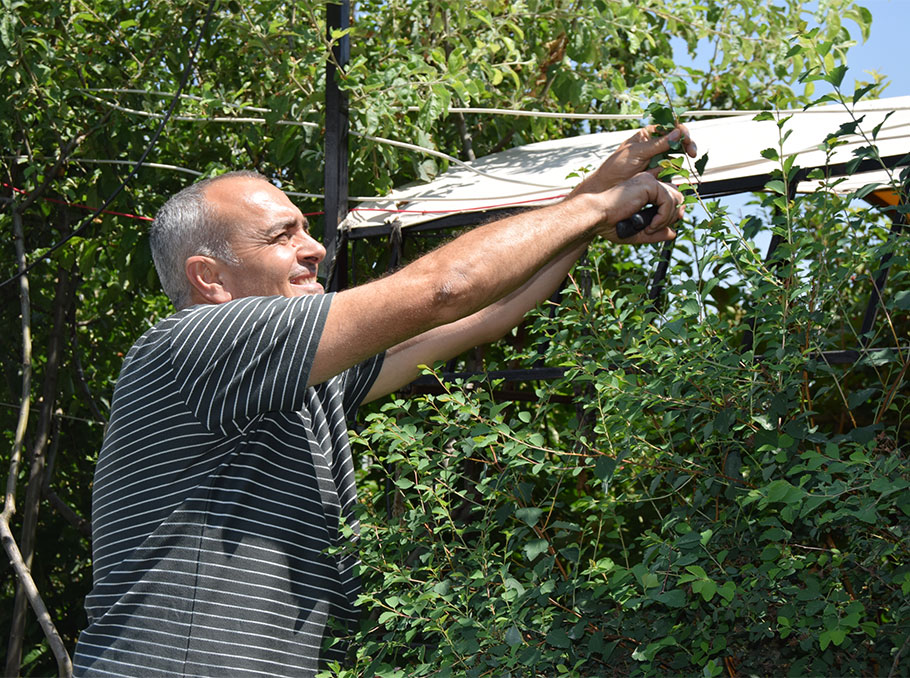The Ishkhanyan family has been engaged in beekeeping for over 30 years, but the motivation to turn it into a business was the grant announced by the EU4IMPACT project under the Resilient Syunik Team Europe initiative. The family had 10-20 beehives until 2021, and now they already have 40.
Launched in 2020, the four-year EU-funded EU4IMPACT ARMENIA project is implemented by the International Centre for Migration Policy Development (ICMPD). EU4IMPACT aims to support the migrants (including working), returned migrants and the members of their families in establishing a business or developing an already established business (start-up) and their future business initiatives. Upon successful completion of the respective stages of the project, it provided from 2000 to 10000 Euro grants to beneficiaries equal to the amount of their own investment.
“The project helped introduce new technologies in beekeeping and reduce the risks hindering the business.”
“This was a good opportunity to turn my father’s favourite hobby into a business and promote it. Almost three years have passed since the implementation of the project, but we will feel the impact of the assistance provided for a long time. We were one of the few families in Syunik to have the opportunity to use new technologies in beekeeping thanks to the equipment we bought within the framework of the project: honey extractor, beeswax melter, etc.,” says Nara Ishkhanyan, a resident of Goris community, adding that previously, it took several days to extract honey manually, whereas now, her father simply places the frames in the extractor, which does all the work, reducing human involvement to a minimum.
The family of beekeepers also received about 30 beehives, replacing the old ones with new ones. They are light and easy to move around, which has also helped to keep the bees healthy and reduce losses. Nara says that in 2024, a large percentage of bee deaths was recorded throughout Armenia, but they, unlike others, had only a 5% decline.
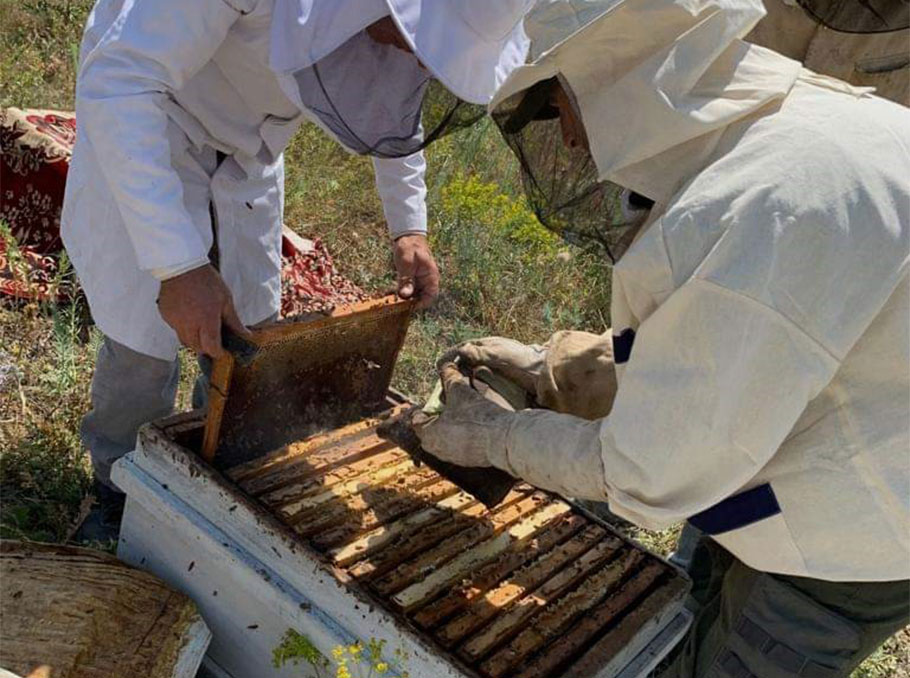
“Beekeeping is a high-risk business, since every climate change, so much ultraviolet radiation caused by the Internet, the consequences of previous diseases in beehives cause a decline of bees. But in our case, renewing the hives reduced the losses,” says Nara.
In addition to purchasing the hives and the equipment, Nara also highlights the fundamental knowledge gained during the project on developing a business plan, marketing skills to promote the business, branding, and other topics.
“I have attended various business courses, but this course was completely different from others due to the expert team and consultants. My business is in agriculture and my consultant was an agriculturist, so, at the end, we had our business plan and an approved project,” she says, emphasizing the advanced network cooperation.
“It’s been years, but if there is an important offer, all the beneficiaries are notified and join various activities if they want to. Also, the beneficiaries involved in the same sphere keep in touch and, if necessary, exchange experience, which is even more effective,” she adds.
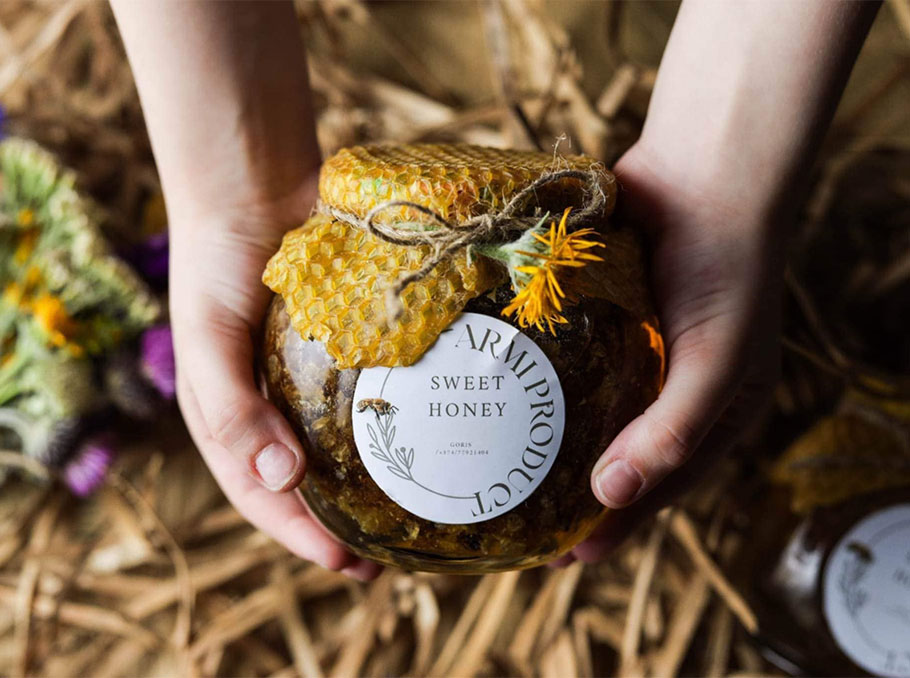
From the point of view of business development, today, increasing the number of hives and the lack of labour has become problematic, unlike before, when the demand for honey was low and it was difficult to sell it. But the Ishkhanyans found a solution: they found people eager to get involved in beekeeping, who help them by simultaneously learning all the secrets of beekeeping and get the opportunity to have their own beehives.
“The most successful ideas of the project came from Syunik”
“This project was a means through which it was possible to use financial, labour and expatriate experience for the development of communities which migrants leave to work abroad. It’s time to change the approach to migration, because it also brings positive changes, such as the experience in housing and road construction,” says Andrey Apoyan, head of the Armenian office of the International Center for Migration Policy Development.
Grants were announced in five stages within the framework of the project. By participating in various courses and successfully presenting their business plan, the participants received grants to develop their business. Sixteen beneficiaries from the communities of Goris, Tatev, Sisian and Kapan of Syunik region received grants. Their business ideas revolved around the development and strengthening of beekeeping, livestock farming, cafe, beauty salon, hotel industry, landscape design, intensive gardening and fiber production.
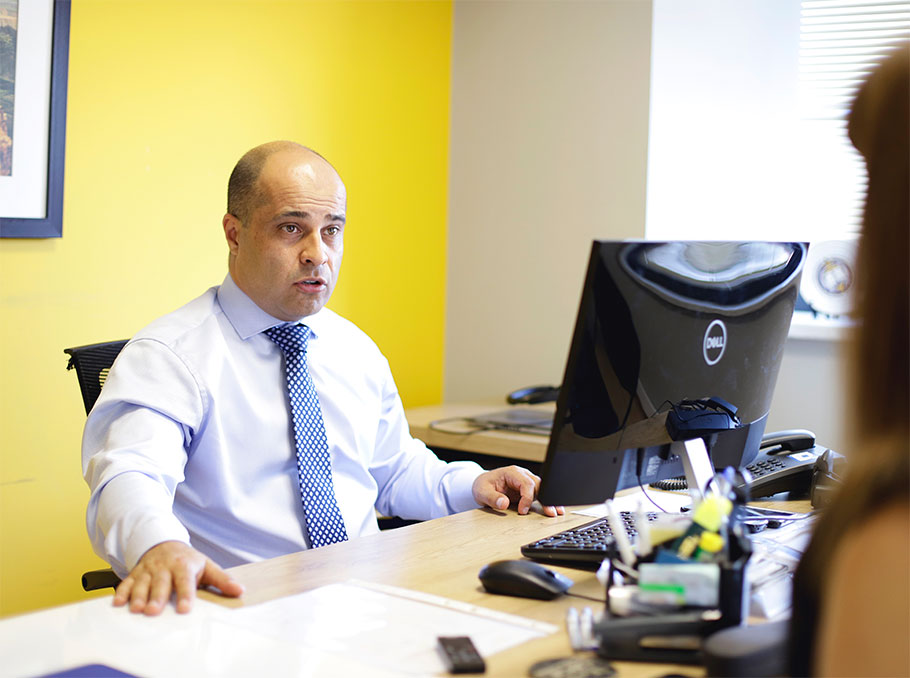
“The investment made in Syunik has helped many beneficiaries to get on their feet or develop their businesses, and the results are visible. The most successful ideas of the project came from Syunik. It was also evident from the results of the monitoring we conducted,” says Andrey Apoyan.
Thanks to the EU4IMPACT project, a new business direction developed in Goris
“The idea of a new business was born when we created our hotel business. RED ROOF stood out with its garden not only for the guests, but also for the residents of Goris. I had a space where I could do anything I imagined without being a farmer or a landscape designer. So, the process of planting, landscaping, and caring for trees and bushes became a vital experience for me, and that’s when the idea to set up a company that can deal with landscape design and landscaping in Goris was born,” says Artashes Torozyan, head of the “Green Gates” company.
The courses and counseling organized within the project helped Artashes make the correct transition from the idea to a real business, to understand the process and to what extent he will be able to turn the idea into a real business. “But the important thing is to believe in yourself, in the success of your work and to show an unbreakable will to achieve your goal. The rest will come later. Business takes time, but it is important to work every day to bring the idea to life,” he told Mediamax.
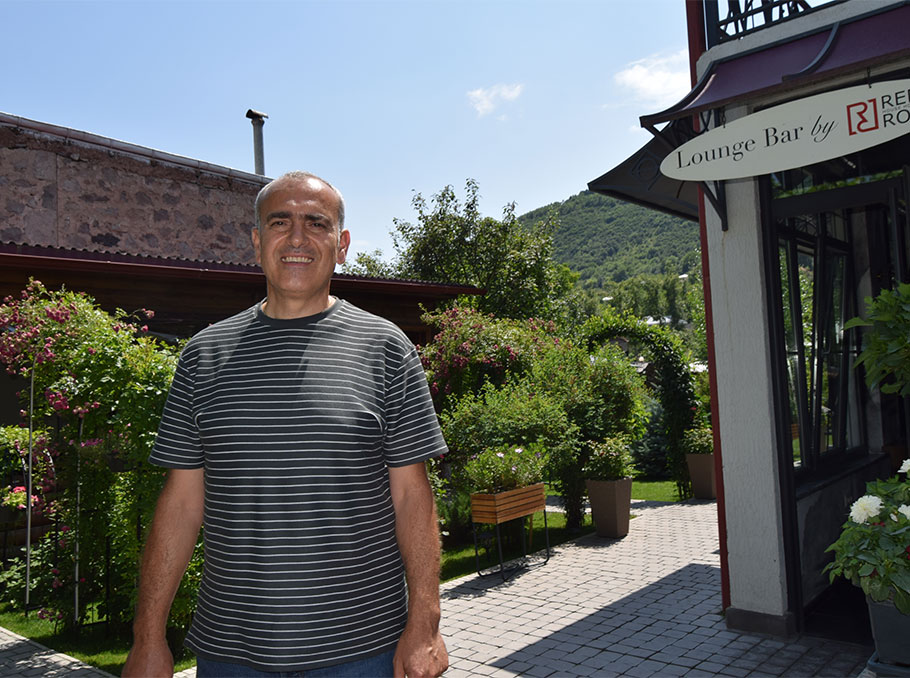
Besides, the grant also helped the newly founded company acquire agricultural tools, all the necessary equipment and tools for drip irrigation and lighting, as well as develop landscape design service packages. “We started providing such services back when the business was only an idea, but this year everything will be done more professionally. We already have orders from several guest houses to design and landscape their yards. We have collaborated with local authorities to carry out landscaping in Goris,” says the founder of the company.
Artashes thinks that changing people’s attitude towards the process of cultivation of plants, flowers, bushes, saplings is pivotal, showing that anyone can create an interesting environment with appropriate knowledge and consistency. “If we landscape the yards of ten guest houses, but walking on the sidewalk is unpleasant, or you don’t feel good when you enter a garden because it’s not taken care of, it won’t change much in our lives. We have to work on a common environment. We are hopeful that we can spread this culture, and the residents will be able to find more interesting solutions in their yards. Plans are in order to pass on the skills to the residents so that they can grow their own plants,” he says.
According to him, although Goris has always been famous for its green spaces and private houses with their own gardens, and in recent years the guest house and restaurant business has also developed rapidly, it is evident that there is a serious need for green and well-kept areas with interesting tree species. “Of course, we must use our traditional trees and shrubs, combining them with those that don’t grow in Goris, which, as part of the landscape design, can feel good in our climate and create a unique environment. Over the past three years, having learnt from our personal experience which trees and bushes feel good in our community, also taking into account the growth speed, we are starting to recommend them to others as well,” says the founder of “Green Gates”.
“Our gardening culture is very low. It seems that they plant a tree and are done with it. They don’t prune, cultivate and cure the tree if needed, etc. But we need well-kept gardens. After creating this culture, it will be necessary to train gardeners, which will be a new profession for the region,” says Artashes.
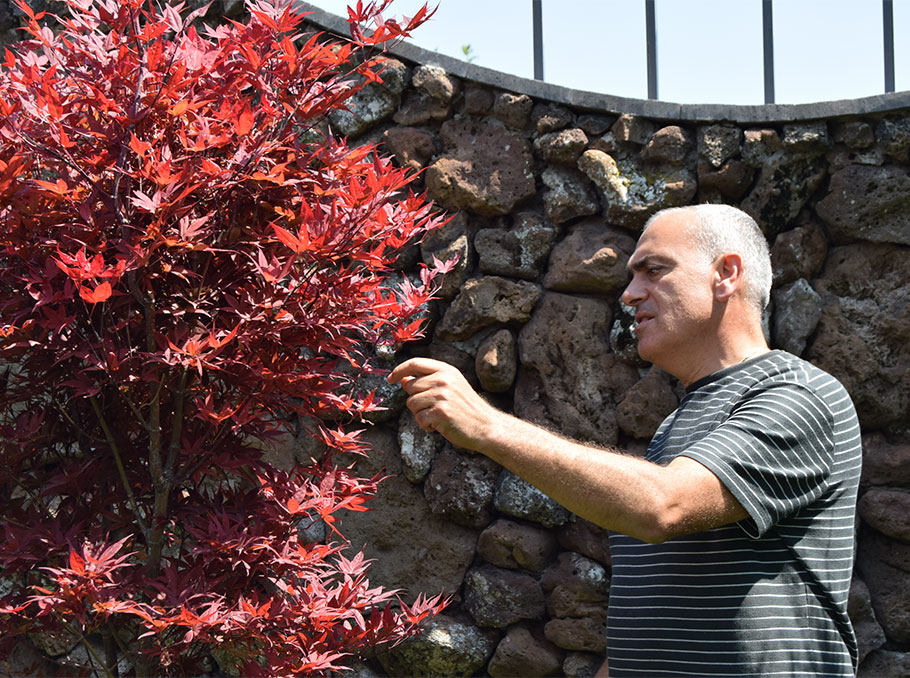
As for what the future holds, Artashes sees his business take off across Armenia. Soon, they will have a specialized store where the already purchased 2000 saplings and indoor plants will be sold. They will also provide advice on how to take care of them efficiently.
“The Resilient Syunik Team Europe initiative is the joint undertaking of the European Union, the European Investment Bank, EU Member states - Austria, Czechia, Estonia, Finland, France, Germany, Lithuania, the Netherlands, Poland, Sweden, and Switzerland also joining as an external partner. The initiative aims to contribute to the sustainable socioeconomic development of the Syunik region.”
Anahit Baghdasaryan
Photos: Anahit Baghdasaryan, Agape Grigoryan









